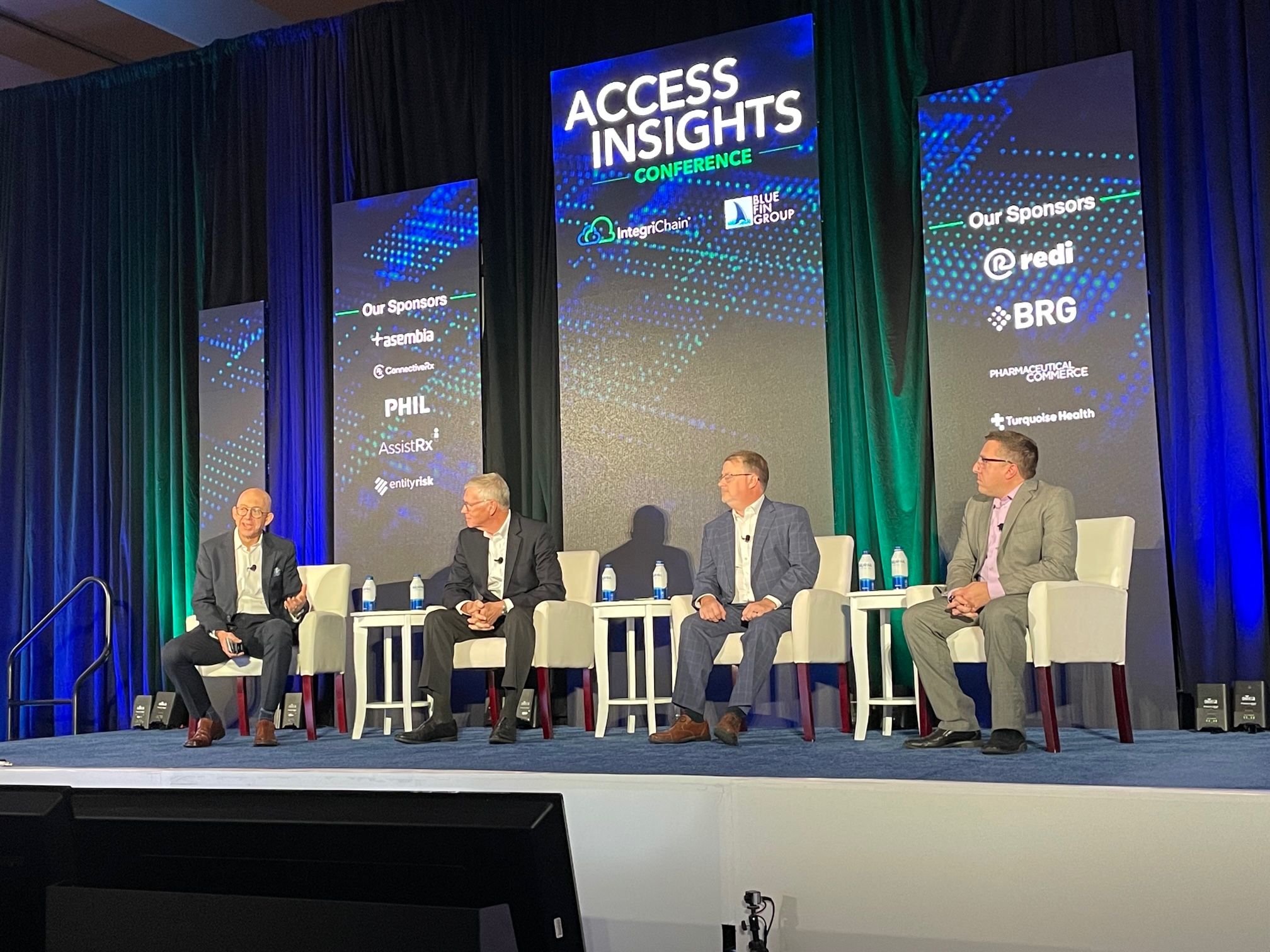Access Insights 2023: The Pharmacy of the Future
Conference session discusses the drivers, practical considerations, success factors, and landscape for next-generation pharmacy innovation.

On the first day of the 2023 Access Insights Conference, a breakout session moderated by Richard Prest, senior principal, Blue Fin Group, a panel of industry experts discussed the landscape for next-generation pharmacy innovation. The panelists included Jonathan Ogurchak, PharmD, co-founder, CEO, Zeal Specialty Pharmacy, Harry Travis, president, The Travis Group, and Thom Cohn, chief strategy officer, Asembia.
Prest began the discussion by asking Travis how things are looking for the future and how the industry gets there.
“The panel topic is 'The Pharmacy of the Future.' So, I think we should take a few minutes and talk about the pharmacy of the present,” Travis began. “We have 58,800 retail pharmacies in the United States split between the majority, which are chains such as Walgreens, CVS, grocery stores, a little less than 20,000 independent retailers, and 1500 to 2000 long term care alternate sites. They dispense about $500 billion divided by brand specialty and generics. They are generated from 6.2 billion prescriptions if you normalize everything to the 30-day prescription.”
“If you have a pharmacy, you need a licensed pharmacist to run it. Currently, there are 315,000 pharmacists licensed in the United States,” he continued. “Right now, this profession is at a really interesting and scary point. This year, American pharmaceutical schools reported 13,500 graduates, down 11% from its peak in 2018. That number is not going to get any better. Are we headed towards a shortage of pharmacists?
Prest continued by asking Ogurchak where he sees software that helps pharmacies track of rules and regulations going.
“It never gets easier, there is always a chance of more and more regulation,” stated Ogurchak. “When you’re looking at pharma, there’s 50 different pharmacy boards, all with their own rules and regulations. They’re all looking for their own version of what pharma is, making it difficult for everybody to stay on top. So, at least on the software side of things, we’ve been trying to find some new and novel ways to empower pharmacists such as automating things that will allow them to drive better outcomes for patients.”
Prest then asked Cohn to elaborate on what pharmacists can do depending on the state they are in.
“I think when we are looking at things and expanding the role of pharmacists, we talk about them as providers, but even things like engaging in a collaborative practice, each state has different rules,” said Cohn. “Some of those rules are talking about education. You need to be an advanced practice pharmacist that has done a residency. When you start looking at states like California, there’s actually a very small number of candidates. And then talking about channels, that means they have to practice within the health system.
Reference
The Pharmacy of the Future. November 6, 2023. Access Insights Conference, Orlando.